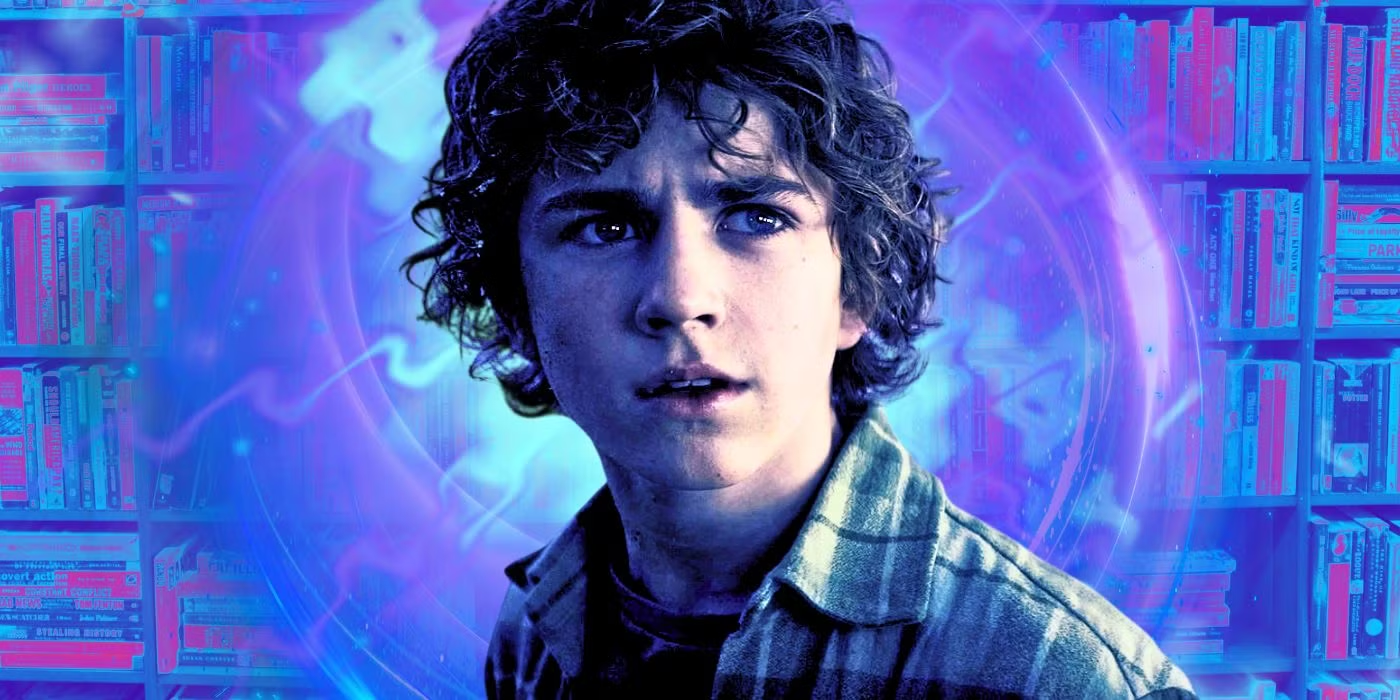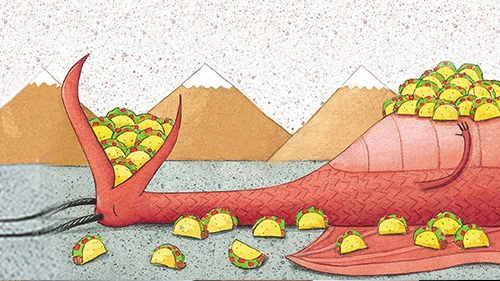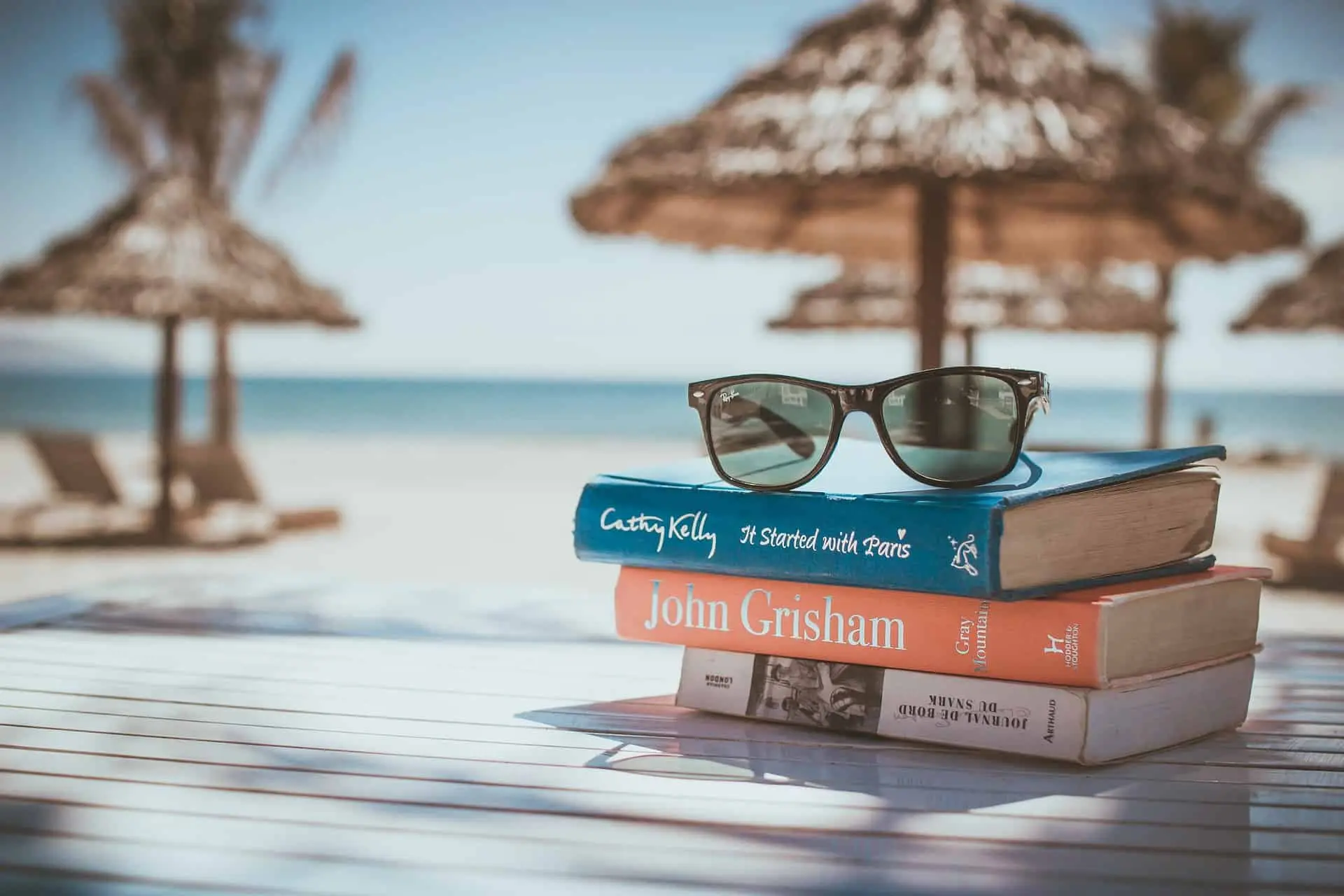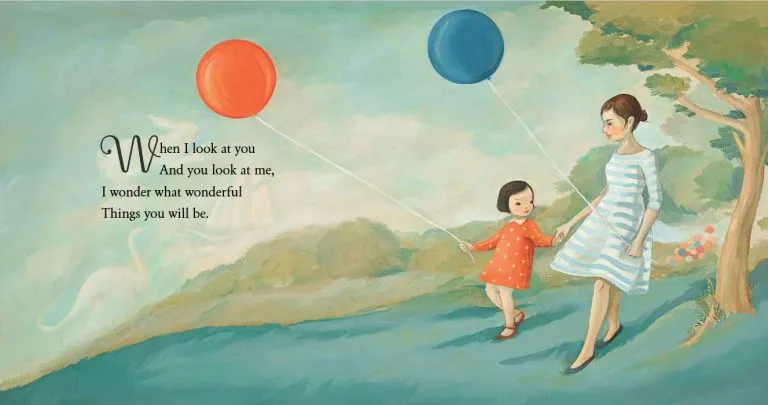A Literary Dinner Party? Anne Enright Would Prefer Lunch

“Somewhere outdoors in the sunshine, with a walk afterwards,” says the Booker-winning author of “Actress” and other books. “I am not as interested in what people say as in where they look.”
What books are on your nightstand?
“Giving Up the Ghost,” by Hilary Mantel; “Topics of Conversation,” by Miranda Popkey; “Concrete,” by Thomas Bernhard, which is a terrifying book about writer’s block and lies there like a piece of voodoo, never to be touched or finished. “The Wife’s Tale” is an account of her Ethiopian grandmother’s life by Aida Edemariam that came out a couple of years ago and refused to leave my paperback pile until I picked it up, and I was very glad I did. I also have the Bible there, in different translations: the King James Bible for old-fashioned fury, the New Jerusalem Bible for hope.
Are there any classic novels that you only recently read for the first time?
“Frankenstein,” by Mary Shelley. What a mad novel. It was suggested for class by one of my writing students and I found it incredibly bocketty, as though stuck together from various bits of different books. It was held true, however, by its fierce metaphysics and by the wonderfully contradictory figure of the monster. This is a classic that would never have survived a creative writing workshop — a powerful lesson in writing as though you have not yet woken up.
Can a great book be badly written? What other criteria can overcome bad prose?
See above.
Describe your ideal reading experience (when, where, what, how).
I like being alone in the center of family. I think this is the way I read as a child, surrounded and private at the same time. I like to feel privileged by the secret contents of the book.
What’s your favorite book no one else has heard of?
There was a little novel called “A Kid for Two Farthings,” by the English writer Wolf Mankowitz, that I read at 8 or 9. It is a sentimental tale about a boy, in London’s East End, who buys a goat with a single bud on its poll because he thinks it is a baby unicorn. He waits for the horn to grow, so he can grant the wishes of the people he loves: the tailor who lives downstairs, the young boxer who can’t afford an engagement ring, and his mother who does not know when his father will come back “from Africa.” The magic was not in the unicorn, or even in the goat, of course, but in the plot. It was a bit like “My Oedipus Complex,” a short story by Frank O’Connor that I also liked, but it was, now that I describe it, more flagrantly Oedipal than the O’Connor. A horn. No really. There you go.
Which writers — novelists, playwrights, critics, journalists, poets — working today do you admire most?
I am full of joy and admiration for the work of a recent generation of Irish women who are so searching and unafraid: Anna Burns, Eimear McBride, Sally Rooney and, in nonfiction, Sinead Gleeson and Emilie Pine.
Do you count any books as guilty pleasures?
I quite like a bad boy narrator — sometimes even if they are nasty.
What writers are especially good on mother-daughter relationships?
A key book for me was “Envy and Gratitude,” by Melanie Klein — perhaps, because she was a woman writing in psychoanalysis, Klein captured something I found telling about the connection between a baby (let’s call her a daughter) and its mother (let’s call her Mama, or Mary, or Hilary). The most amazing iteration of these difficulties and mysteries is in “Beloved,” by Toni Morrison, but more recently I also like “My Name Is Lucy Barton,” by Elizabeth Strout, “Are You My Mother?,” by Alison Bechdel, and “Letters Home,” by Sylvia Plath (the edition I read was edited by her mother, Aurelia). Now that I am a mother as well as a daughter I turn to the poets, who are better able to manage these perils and paradoxes: Sinead Morrisey, Eavan Boland, Sharon Olds, Anne Carson.
Do you prefer books that reach you emotionally, or intellectually?
Is this a question about temperature? I suppose I can take the chilly thing longer than the huggy thing. I can put up with horrible old Nabokov longer than, say, Louisa May Alcott — but not for much longer. Solipsism is enthralling but also boring (and finally often repulsive). I like Rachel Kushner and Deborah Levy, who are both pretty astringent, but even highly connected writers like Alice Munro are making a shape on the page, and it is the shape that moves me, as much or more than the lives she depicts.
How do you organize your books?
I don’t keep books in sight of visitors — they feel like personal items, somehow — so they all live downstairs in the basement. I have, in my study, a half-wall of books that I really like, but I have never told anyone where it is. Actually, no one goes into my study, not even me.
What book might people be surprised to find on your shelves?
I would be surprised to find anyone looking at my shelves.
What’s the best book you’ve ever received as a gift?
Can I tell you instead of the best book I ever gave? My mother used to talk about the first grown-up book she read, at the age of 7. She remembered where she was when she finished it (at the end of the dining room table), what day it was (a Tuesday), and where her own mother was as she finally closed the book (outside, in the kitchen). It was called “Hetty Gray,” by Rosa Mulholland, and, some years after the internet made such things possible, I took a notion and sourced a copy in a shop in New Zealand. So one morning, deep into her 80s, my mother received a small parcel from the other side of the world that contained a book she had read at the age of 7, with no note or indication of the source. After she read it again, she told me, she remembered all the first half, but not the second.
Who is your favorite fictional hero or heroine? Your favorite antihero or villain?
My favorite characters are usually narrators. I am seldom torn by the moral and emotional hazards of characters who are described from the outside (an exception has to be Lily Bart in “The House of Mirth”). Patrick McCabe’s Francie Brady in “The Butcher Boy” was a bit of turning point in the Irish tradition, back in 1992, maybe I will pick him. Poor Francie is a murderer, but not quite a villain.
What kind of reader were you as a child? Which childhood books and authors stick with you most?
Some neighboring children have a story about making me read an encyclopedia when I was 3. I remember the game, or I think I do, but I don’t remember learning to read. My mother taught me, and that must have been such a pleasure. My life in books has been divided into public, showing-off reading (like this column, perhaps) and lovely, problematic, private reading ever since.
How have your reading tastes changed over time?
I was a book-a-day child, a pretentious teenager. I read hugely in my 20s and 30s — all the good stuff, nothing very odd or esoteric. As I started getting published, I read my contemporaries in a way that was not entirely pure. Then, after I had children, I stopped. It is possible more books were written than read by me, in the years when they were small. I don’t think I am a recreational reader. I am always looking for something and I am not sure what it is. These days, I am increasingly restless. I throw books aside. I blame the internet. I blame the chair. I yearn for books not published yesterday or next week. I stick to nonfiction. And then suddenly, I can’t leave a book out of my hand. This happened most recently with “Where Reasons End,” by Yiyun Li.
You’re organizing a literary dinner party. Which three writers, dead or alive, do you invite?
How about Alice Munro, Grace Paley and Katherine Mansfield — and could we do lunch instead? I’d like somewhere outdoors in the sunshine, with a walk afterwards. I am not as interested in what people say as in where they look.
What do you plan to read next?
“Drive Your Plow Over the Bones of the Dead,” by Olga Tokarczuk.




